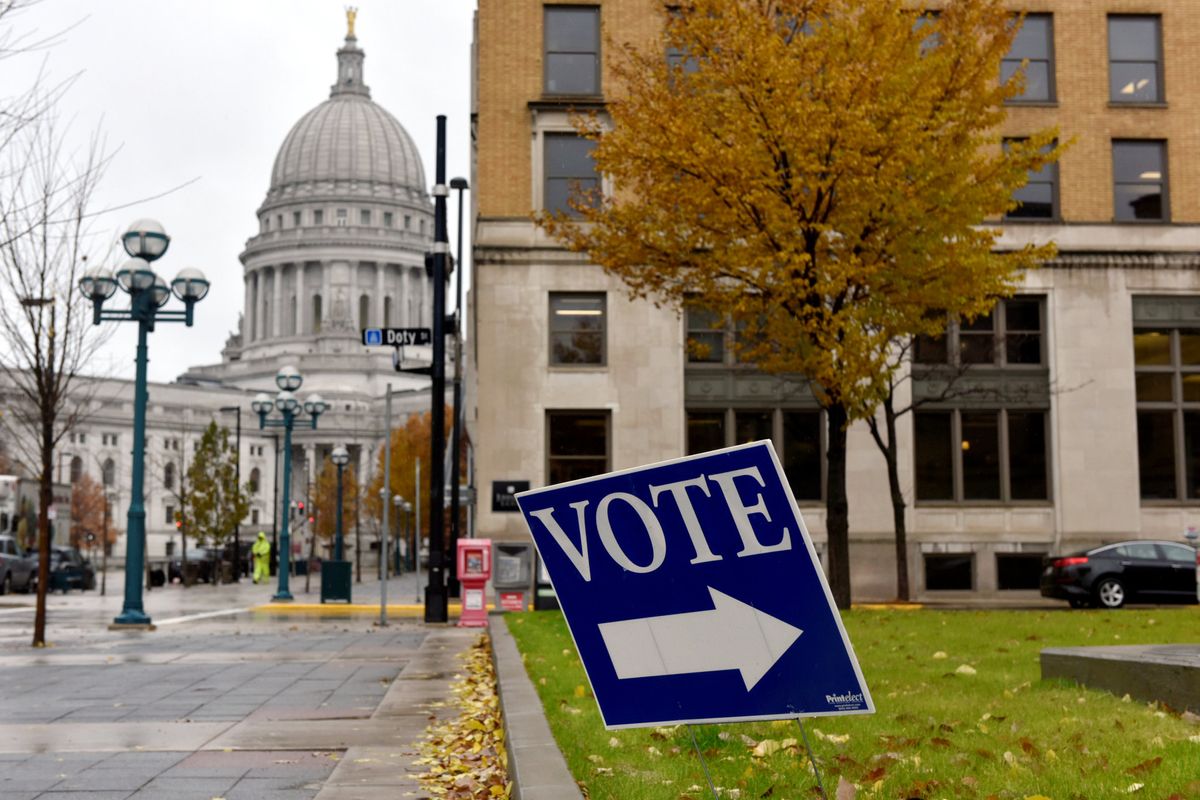Democrats may have control at the federal level but Republicans are pushing back through states

A few minutes every morning is all you need.
Stay up to date on the world's Headlines and Human Stories. It's fun, it's factual, it's fluff-free.
30 state legislatures are now controlled by Republicans, while only 18 are controlled by Democrats.
Though the hotly anticipated “Blue Wave” did not sweep over the country as thoroughly as some analysts had predicted in the weeks and months leading up to the American election on November 3, 2020, there’s no denying that Democrats notched major victories in both the Senate and the White House, despite losing several seats in the House of Representatives.
But that victory is beginning to be undercut by the majority of state legislatures, which are Republican-controlled, as they begin to enact stricter voting laws, pass state sovereignty bills and push through highly conservative legislation to push back against Democratic ideologies in Washington.
The slow burn
Republicans have gradually been taking control of state legislatures for decades now. In 1980, even as Reagan was elected president and Republicans gained control of the Senate, Democrats controlled nearly twice the number of statehouses as Republicans did, holding 29 to the Republicans’ 15.
But as the Republican vision was clarified under President Reagan, local state organizing began to strengthen nationwide. In 1994, through a series of highly effective attacks on congressional Democrats, the GOP gained significant ground nationwide by deepening control in the state legislatures they already controlled, flipping states whose legislatures were split and splitting state legislatures that had been previously held by Democrats.
This pattern continued in 2010, when Republicans gained control over additional state legislatures, gaining a firm grip on the Midwest and Southeast that has yet to be undone.
Some analysts explain Republicans’ success on the state level by alleging that Democrats have long been too focused on national races and neglected to defend state ones.
“Republicans were able to capitalize on that on every level,” Austin Chambers, the Republican State Leadership Committee director, told The Washington Post. “The Democrats didn’t organize any real opposition. They didn’t spend any money. They were so focused on what was happening in Washington that they forgot about this thing out there called state capitols.”
30 state legislatures are now controlled by Republicans, while only 18 are controlled by Democrats.
Conservative legislation
In the wake of a presidential election with razor-thin voting margins in some states, Republican-controlled legislatures in Arizona, Georgia and Pennsylvania have been drafting legislation that would limit mail-in voting and require photo ID to vote.
Much of the legislation is based on unsupported claims of election fraud that surrounded the 2020 election, but some have said the laws need to change “so that [Republicans] at least have a shot at winning,” according to Alice O’Lenick, a Georgia Republican.
The legislation has gained GOP support nationwide, gaining recognition from anti-abortion rights groups, Christian groups and Texas Senator Ted Cruz.
In Oklahoma, the state House of Representatives passed a bill that would give the legislature the authority to declare federal executive orders and laws unconstitutional.
“The primary purpose of this bill is to push back on executive orders that infringe on states’ rights and on constitutional rights,” said Republican State Representative Kevin West.
According to an Oklahoma House of Representatives press release, the Oklahoma legislation is a push against HR1, a federal bill that would extend voting rights nationwide, and HR8, a bill that would mandate background checks for firearm purchases. If the bill becomes law, it will likely face constitutionality questions itself.
35 bills have been introduced in statehouses throughout the country that involve limiting or prohibiting transgender women from competing in women’s athletics. Specifically, many of these bills would prohibit transgender female students from participating in female sports in school.
Proponents of the legislation argue that trans athletes who identify as female have a competitive edge in sports, but critics argue that they simply open trans women to humiliating treatment without actually changing anything about competitive sports.
The legislation is more broadly a move to inflame the culture war in the United States and pushes back against the expansion of trans rights by the Biden administration.
In his speech at the Conservative Political Action Conference (CPAC), former President Donald Trump argued that if transgender athletes were allowed to compete, “women’s sports as we know it will die.”
Such legislation might prove to be unconstitutional, says White House press secretary Jen Psaki, who added that “that no one should be discriminated on the basis of sex, not only is this the law of the land, it’s [President Biden’s] own deeply held view.”
With the 2022 elections looming, Democrats will soon be forced to divide their attention between fights on the national level and those on the state level.
Have a tip or story? Get in touch with our reporters at tips@themilsource.com




Comments ()